|
Requires CORE-GS | Professional |
Database layers define how data in the database is represented in models.
In most collections only one template is used at a time, but in a Database Layer Collection all templates are used whenever a database refresh is run.
To open the Database Layers Designer, click the Layers button is located in the Database group on the Home page:

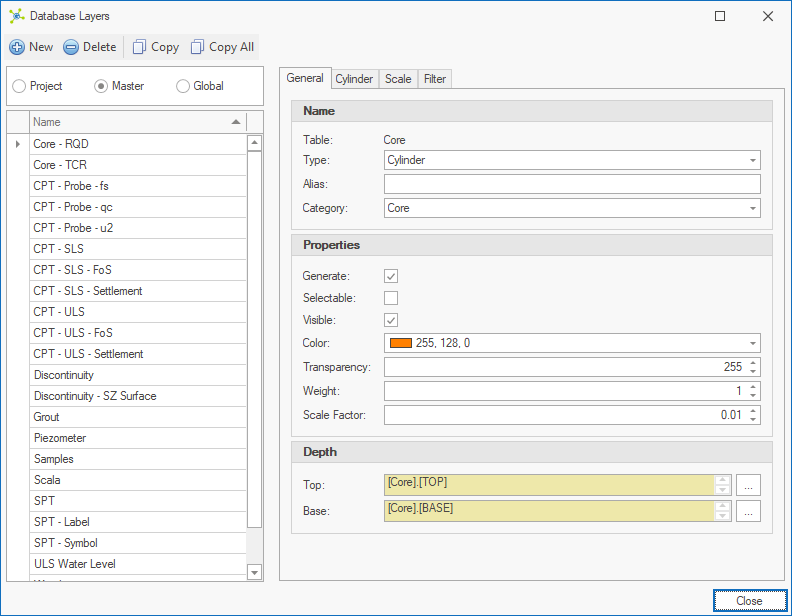
The Database Layers Designer enables the creation and editing of database layer templates that control how data from the database is represented in the model.
This section covers the use of the tool and settings that can be changed:
•Toolbar - provides general editing functions.
•Navigator Control - shows the templates stored in the selected collection.
•Settings Control - enables editing of the template properties.
Toolbar
The toolbar is located on the top of the form and provides tools to create, delete and copy layer templates.

New - creates a new layer template once the name and table (where data is stored) are set.
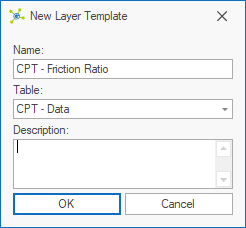
Delete - deletes the currently selected layer template.
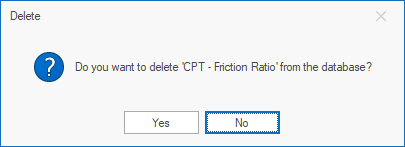
Copy - copies the currently selected layer template with a new name.
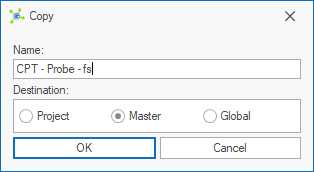
Copy All - copies all templates in the Master collection into the Project collection.
|
There's no way to check which models have used specific templates (as model files are not part of the database), it's recommended to consider copying layer templates into the Project collection. |
Navigator
The navigator control is located on the left-side of the form and shows items in one of the three template collections; Project, Master or Global.
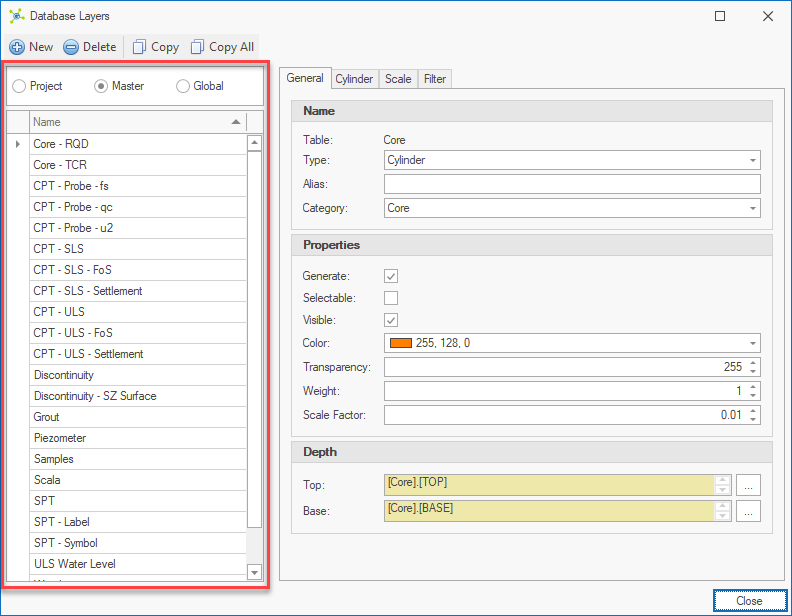
Changing the selected template will change the Settings (see below) shown on on the right-hand side of the form.
|
By default all new models use the Master collection, as defined by the Layer Collection setting. |
Settings
The settings control is located on the right-hand side of the form. This control shows the selected templates settings.
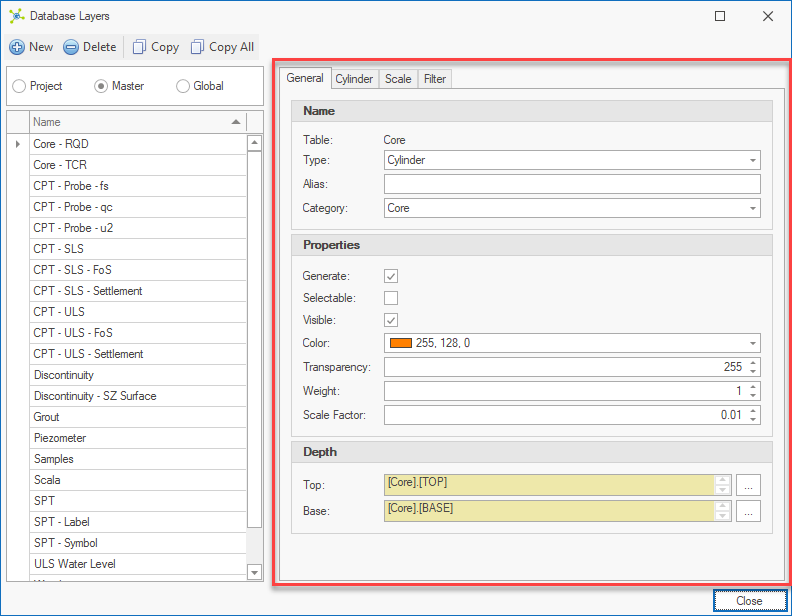
|
Many properties are setting an SQL expression to tables and columns in the database. Clicking the ... button will shown the Expression Builder. |